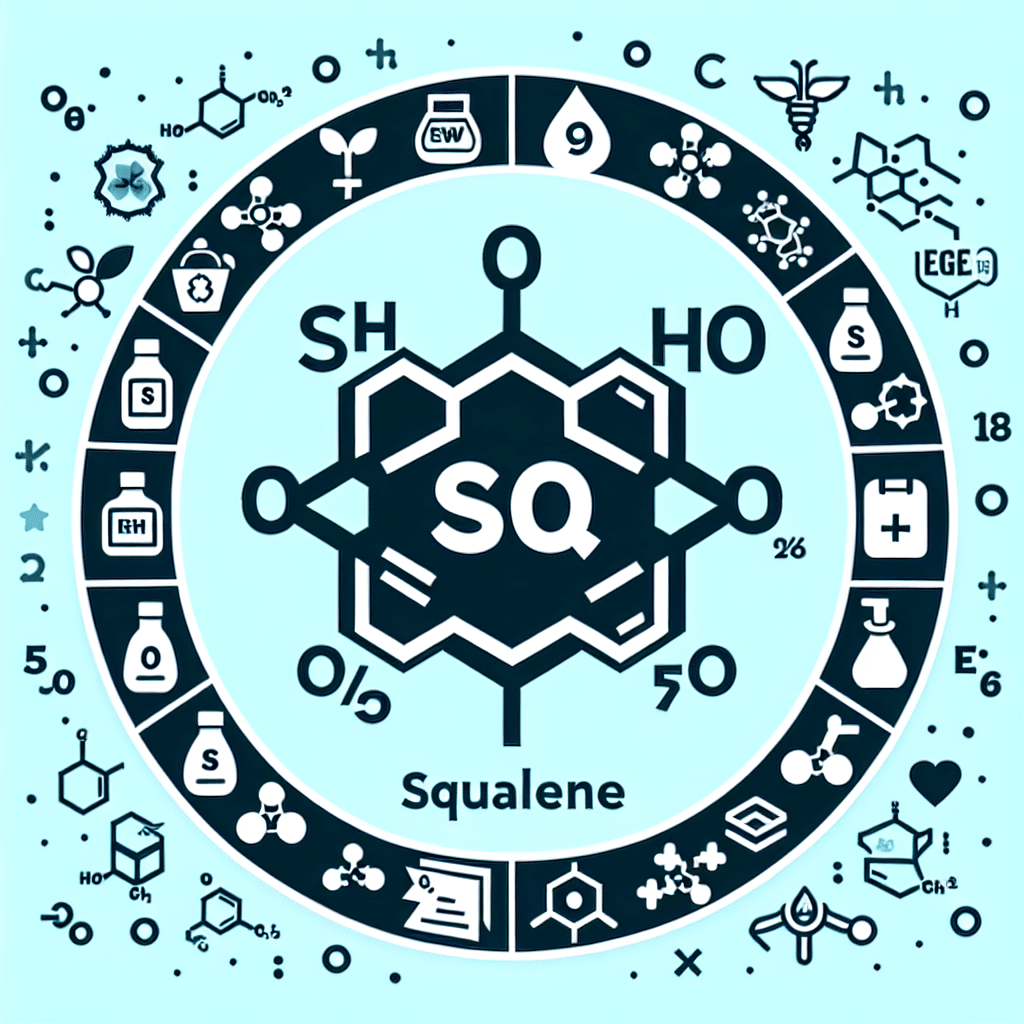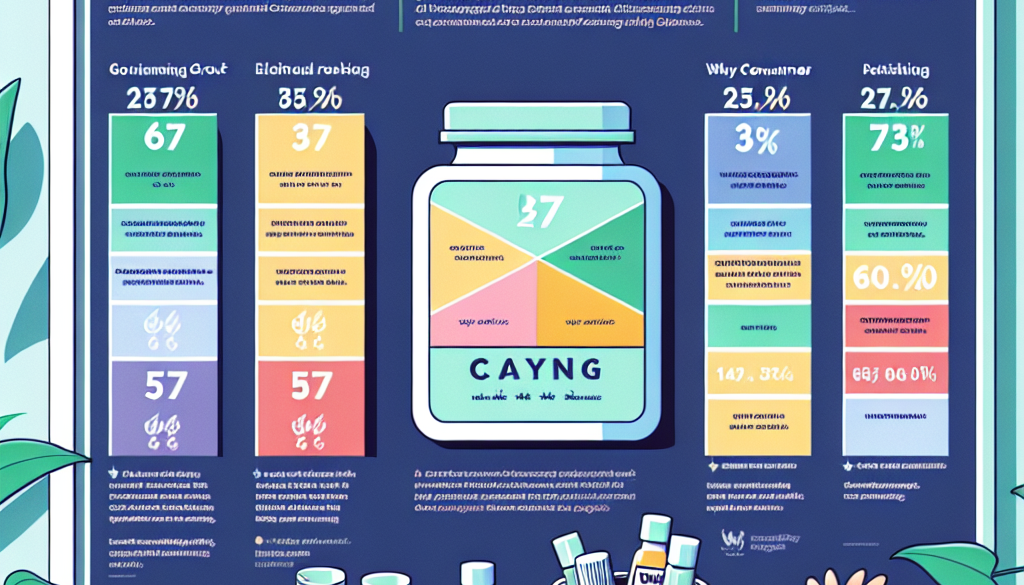Squalene EWG Rating: What to Know
-
Table of Contents
- Squalene EWG Rating: Understanding Its Significance in Skincare
- What is Squalene?
- Understanding EWG Ratings
- Squalene EWG Rating Explained
- The Source Matters: Plant-Based vs. Shark-Derived Squalene
- Benefits of Squalene in Skincare
- How to Choose Squalene Products Responsibly
- Case Studies and Statistics
- Conclusion: Squalene’s Role in Conscious Skincare
- Discover ETprotein’s Sustainable Protein Products
Squalene EWG Rating: Understanding Its Significance in Skincare

Squalene is a natural compound that has garnered attention in the skincare industry for its moisturizing properties and potential health benefits. However, with the increasing awareness of ingredient safety and environmental impact, consumers are turning to the Environmental Working Group (EWG) ratings to guide their product choices. This article delves into the squalene EWG rating, its implications for consumers, and what you need to know when considering products containing squalene.
What is Squalene?
Squalene is a hydrocarbon naturally produced by the human body and found in various animals and plants, including olives, rice bran, and shark liver. It’s a precursor to cholesterol and other steroids and plays a crucial role in maintaining skin’s moisture and elasticity. In skincare, squalene is valued for its emollient properties, helping to soften and smooth the skin, as well as its potential antioxidant benefits.
Understanding EWG Ratings
The Environmental Working Group (EWG) is a non-profit organization that rates the safety of cosmetics and personal care product ingredients. Their database, known as Skin Deep, evaluates ingredients based on toxicity, allergenicity, and overall safety, providing a score from 1 (safest) to 10 (most hazardous). These ratings are intended to help consumers make informed decisions about the products they use.
Squalene EWG Rating Explained
According to the EWG’s Skin Deep database, squalene has a rating of 1, indicating it is considered a low hazard ingredient. This favorable rating is based on the available scientific literature and data on its use in cosmetics. However, it’s essential to understand that the EWG rating does not account for the source of squalene, which can have ethical and environmental implications.
The Source Matters: Plant-Based vs. Shark-Derived Squalene
While squalene itself may have a low hazard rating, the source from which it is derived can be a point of concern for consumers. Traditionally, squalene was harvested from shark liver, which raised significant ethical and sustainability issues due to the impact on shark populations. Today, there is a shift towards plant-based squalene, which is considered a more sustainable and cruelty-free option.
- Shark-Derived Squalene: The extraction of squalene from sharks has contributed to the decline of certain shark species. As apex predators, sharks play a vital role in marine ecosystems, and their overexploitation can have far-reaching consequences.
- Plant-Based Squalene: Derived from sources like olives, amaranth seeds, and wheat germ, plant-based squalene offers a sustainable alternative. It provides the same skincare benefits without the environmental and ethical concerns associated with shark-derived squalene.
Benefits of Squalene in Skincare
Squalene’s popularity in skincare products is due to its numerous benefits, which include:
- Moisturizing: Squalene is an excellent moisturizer that helps to maintain the skin’s natural barrier, preventing moisture loss and keeping the skin hydrated.
- Antioxidant Properties: It may help protect the skin from free radicals that contribute to aging and skin damage.
- Non-Comedogenic: Squalene is lightweight and non-comedogenic, meaning it won’t clog pores, making it suitable for all skin types, including oily and acne-prone skin.
- Stability: Squalene is resistant to oxidation, which helps extend the shelf life of skincare products.
How to Choose Squalene Products Responsibly
When selecting products containing squalene, consider the following:
- Source: Look for products that specify the use of plant-based squalene to ensure you’re choosing an ethical and sustainable option.
- Concentration: The benefits of squalene depend on its concentration in the product. Check the ingredient list to see where squalene falls, as ingredients are listed in order of descending concentration.
- Brand Values: Support brands that are transparent about their sourcing and committed to sustainability and cruelty-free practices.
- Certifications: Look for certifications like Ecocert, which can indicate a product’s environmental and ethical standards.
Case Studies and Statistics
Several studies have highlighted the benefits of squalene in skincare. For instance, research published in the “International Journal of Dermatology” found that squalene can help reduce the appearance of fine lines and improve skin texture. Additionally, market analysis shows a growing demand for plant-based squalene, with the global market expected to reach significant growth by 2025, according to a report by Grand View Research.
Conclusion: Squalene’s Role in Conscious Skincare
In conclusion, squalene’s low EWG rating makes it a safe ingredient in skincare, but it’s crucial to consider the source. Plant-based squalene offers a responsible choice that aligns with ethical and environmental values. By choosing products with sustainable squalene, consumers can enjoy the benefits of this ingredient while supporting the health of our planet and its inhabitants.
Discover ETprotein’s Sustainable Protein Products
If you’re interested in health and wellness, consider exploring ETprotein’s range of sustainable protein products. ETprotein is a reputable manufacturer and supplier of high-quality organic bulk vegan proteins and L-(+)-Ergothioneine (EGT), catering to various industries. Their products are non-GMO, allergen-free, and characterized by a neutral taste, making them an excellent choice for those seeking ethical and sustainable protein options.
About ETprotein:
ETprotein, a reputable protein and L-(+)-Ergothioneine (EGT) Chinese factory manufacturer and supplier, is renowned for producing, stocking, exporting, and delivering the highest quality organic bulk vegan proteins and L-(+)-Ergothioneine. They include Organic rice protein, clear rice protein, pea protein, clear pea protein, watermelon seed protein, pumpkin seed protein, sunflower seed protein, mung bean protein, peanut protein, and L-(+)-Ergothioneine EGT Pharmaceutical grade, L-(+)-Ergothioneine EGT food grade, L-(+)-Ergothioneine EGT cosmetic grade, L-(+)-Ergothioneine EGT reference grade and L-(+)-Ergothioneine EGT standard. Their offerings, characterized by a neutral taste, non-GMO, allergen-free attributes, with L-(+)-Ergothioneine purity over 98%, 99%, cater to a diverse range of industries. They serve nutraceutical, pharmaceutical, cosmeceutical, veterinary, as well as food and beverage finished product distributors, traders, and manufacturers across Europe, USA, Canada, Australia, Thailand, Japan, Korea, Brazil, and Chile, among others.
ETprotein specialization includes exporting and delivering tailor-made protein powder and finished nutritional supplements. Their extensive product range covers sectors like Food and Beverage, Sports Nutrition, Weight Management, Dietary Supplements, Health and Wellness Products, and Infant Formula, ensuring comprehensive solutions to meet all your protein needs.
As a trusted company by leading global food and beverage brands and Fortune 500 companies, ETprotein reinforces China’s reputation in the global arena. For more information or to sample their products, please contact them and email sales(at)ETprotein.com today.














